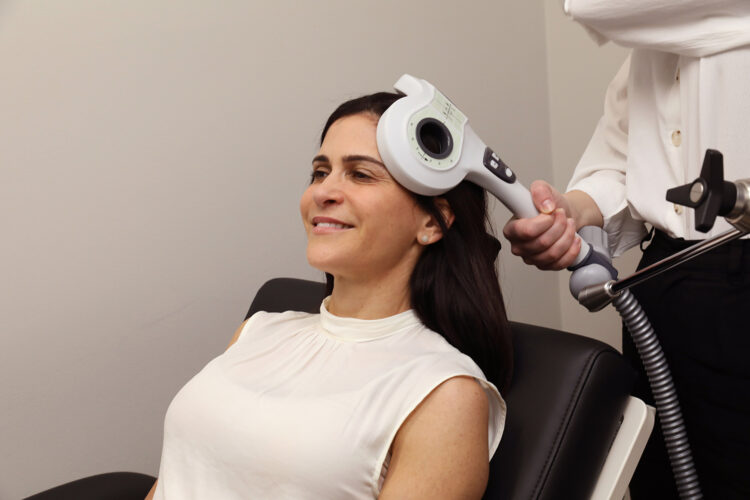Although the arrival of a newborn is an exciting moment, especially for new moms, it may also provide unforeseen problems. Women may have postpartum depression (PPD) after giving birth, and partners must be sympathetic and supportive during this trying time.
We’ll go over practical strategies for helping your wife deal with postpartum depression in this extensive guide. Regardless of whether your spouse has been officially diagnosed with PPD or not, this book will provide you insightful knowledge and useful tactics to help her through her recovery process.
Understanding Postpartum Depression
Before diving into the ways to assist your wife, it’s essential to understand what postpartum depression is and how it can manifest. Postpartum depression is a type of clinical depression that typically occurs within the first year after childbirth. It can affect any woman, regardless of her age, background, or previous mental health history.
Common signs and symptoms of postpartum depression include:
- Intense sadness or feeling of hopelessness
- Overwhelming fatigue and loss of energy
- Difficulty sleeping or excessive sleep
- Changes in appetite
- Irritability or mood swings
- Difficulty bonding with the baby
- Loss of interest in activities she once enjoyed
- Thoughts of harming herself or the baby
Recognizing these signs is the first step in helping your wife get the support she needs.

Open Communication
Effective communication is the cornerstone of supporting your wife through postpartum depression. It’s essential to foster an environment where she feels safe and comfortable expressing her thoughts and emotions.
Encourage her to share her feelings openly, assuring her that you are there to listen without judgment. Remind her that her emotions are valid and that you respect her perspective. A non-judgmental and empathetic approach can make a world of difference in helping her feel heard and understood.
Additionally, avoid offering unsolicited advice or solutions unless she explicitly asks for them, as sometimes all she needs is a listening ear.
Educate Yourself
Taking the time to educate yourself about postpartum depression is an act of compassion and support. Learning about the condition will not only help you understand the challenges your wife is facing but also allow you to navigate this difficult journey together more effectively.
By familiarizing yourself with the symptoms, causes, and potential treatment options, you’ll be better equipped to recognize when your wife may need professional help.
Moreover, understanding that postpartum depression is a medical condition, not a result of personal failure, can help alleviate any misplaced guilt or blame. Your knowledge can also aid in providing the emotional support she needs and in assisting her in finding appropriate resources for treatment and therapy.
Ultimately, education empowers you to be a more informed and empathetic partner on this path toward healing.
Encourage Professional Support
Postpartum depression is a treatable condition, and seeking professional help is often necessary. Encourage your wife to speak with a healthcare provider, therapist, or psychiatrist. Offer to assist in finding a mental health specialist who specializes in postpartum depression if needed.
Attend Appointments Together
If your wife is comfortable with it, attend medical or therapy appointments together. This can provide emotional support and help you better understand her treatment plan. It also shows your commitment to her well-being.

Share Household Responsibilities
Taking care of a newborn can be overwhelming, and postpartum depression can exacerbate feelings of stress. Share household responsibilities, including childcare duties, cooking, and cleaning, to alleviate some of the burden from your wife. Consider asking friends and family for help as well.
Encourage Self-Care
Encourage your wife to prioritize self-care. This might include taking short breaks, engaging in hobbies she enjoys, or getting enough rest. Remind her that self-care is not selfish but essential for her recovery.
Support Her Bonding with the Baby
If your wife is struggling to bond with the baby due to postpartum depression, offer your support and understanding. Encourage her to spend quality time with the baby, even if it’s in small increments. Assure her that bonding can take time and is not a reflection of her love for the child.
Create a Supportive Environment
Foster a supportive and nurturing environment at home. Be patient, and understanding, and avoid adding pressure on her to “snap out of it.” Regularly express your love and appreciation, and remind her that you are there for her.
Explore Innovative Treatments
In addition to traditional therapies, consider exploring innovative treatments such as deep Transcranial Magnetic Stimulation (dTMS) therapy provided by LifeQuality TMS. Situated in the heart of Brooklyn Heights, LifeQuality TMS offers the latest TMS technology from Brainsway for safe and effective depression treatment.
dTMS therapy is a non-invasive procedure that has shown promise in treating postpartum depression and other forms of depression. By stimulating specific areas of the brain associated with depression, dTMS therapy can alleviate symptoms with minimal side effects. The treatment plans at LifeQuality TMS are personalized to meet each patient’s unique needs.
LifeQuality TMS depression treatment is a cutting-edge and highly effective approach to managing depression, including postpartum depression. Located in Brooklyn Heights, LifeQuality TMS specializes in dTMS therapy, which utilizes state-of-the-art TMS technology from Brainsway. Their team of professionally trained staff creates a safe, comfortable, and therapeutic environment for patients seeking relief from the burdens of depression.
By collaborating closely with in-house psychiatrists and working in tandem with your existing healthcare providers, LifeQuality TMS depression treatment offers a personalized and comprehensive strategy to help individuals regain their emotional well-being and enhance their quality of life. If you or a loved one is searching for a transformative solution to depression, LifeQuality TMS depression treatment holds the promise of renewed hope and a brighter future.

Conclusion
Supporting your wife through postpartum depression is a challenging but essential endeavor. By creating an open and empathetic atmosphere, encouraging professional support, and exploring innovative treatments like dTMS therapy at LifeQuality TMS, you can play a vital role in helping her regain her emotional well-being and quality of life.
Remember that postpartum depression is treatable, and with the right assistance, your wife can emerge from this difficult chapter with newfound strength and resilience. Together, you can navigate the path to recovery and a brighter future.
 Hi Boox Popular Magazine 2024
Hi Boox Popular Magazine 2024



